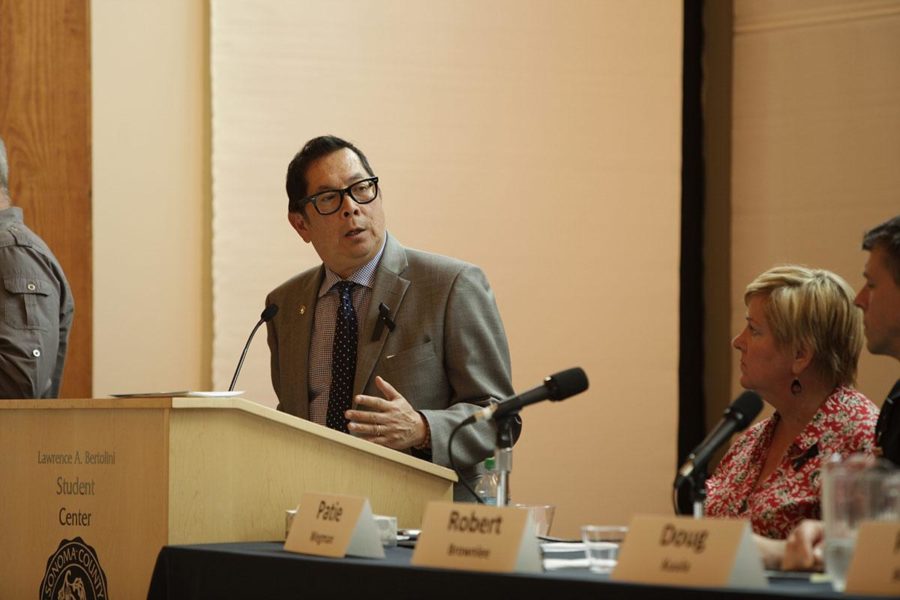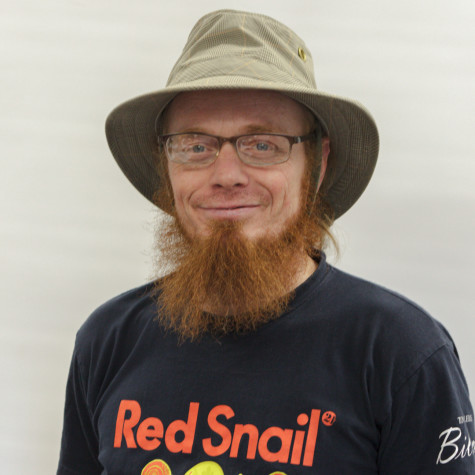Upgrading the locks. Drills in class preparedness. District Police being on gaurd.
These were some of the ideas discussed in response to the recent school shootings. But none of them gained the enthusiasm of the audience more than the ideas to prevent violence before it even happens.
“How can we make sense of the senseless?…As a community we have to take individual responsibility,” said Santa Rosa Junior College President Dr. Frank Chong in an introduction.
SRJC held its first town hall meeting Oct. 19 in response to a recent school shooting at Umpqua Community College.
Chong facilitated the event in Bertolini Student Center and the meeting was broadcast to the Petaluma campus through a video-conference live feed.
Some of the pre-designated panel members included Brownlee, Kuula, Humanities Instructor Alexa Forrester and student Melissa Debret, a member of SRJC speech team, forensics team and Feminists United.
“Should we not consider to intervene earlier in the chain of events?” Forrester said.
Forrester linked problems with self-esteem, income, inequality, environmental toxins and respect of violence as main contributors to the societal breakdown. With a focus on cultural change as opposed to fortification of the college, Forrester said we can keep our school windows open and our campus inviting.
Debret advocated societal change by reduction of cultural violence, destigmatization of mental illness and the importance of community centers available for at-risk youth.
Plans for culture change would benefit not only SRJC, but also places in the community that might suffer from violent tragedies, noted a panel member.
However, community culture does not change overnight. Math instructor Mark Furguson said, “I’m happy the college is addressing it, but I want to be realistic in the sense that it will take a long time.”
The solution appeared to be two-fold. Emergency preparedness would protect our school today, and reduction in societal violence will protect our school tomorrow.
More important to the holistic perspective were the psychological reasons behind mass shootings and what the community can do to treat the societal illness rather than the symptoms of social violence upon outbreak.
Audience members wrote in questions and comments, and open microphones lined the center aisle.
Therapy and psychiatric help was a main audience concern. Journalism instructor Anne Belden asked why it takes weeks to see a psychiatrist at SRJC. Student Psychological Services Director Burt Epstein said he did not have enough available resources or psychiatrists on hand to see students in a timely manner.
“I think to a certain extent we all have to take responsibility for this. I would like to see the college institute the prevention of violence,” Forrester said after the meeting.
While cleaning up after the event, student-laborer Georges Monatin said we need awareness and communication amongst students. “Now [that] we know, we’re going to talk about that. Talk to people about violence prevention.”



